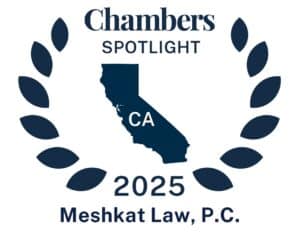Coming in hot on January 1, 2024 is the Financial Crimes Enforcement Network’s (“FinCEN”) new beneficial ownership information reporting rule (the “BOI Reporting Rule”), which will require many companies to report certain identifying information about the individuals who ultimately own and control them. FinCEN is a bureau of the U.S. Department of the Treasury that has historically collected and analyzed financial transaction information from financial institutions (e.g., banks and money exchangers) to enable the U.S. government to combat financial crimes. Most companies have never had to interact with the bureau or comply with any of its rules, and this new BOI Reporting Rule will likely come as a surprise (if it hasn’t already) to many companies who have likely never even heard of “FinCEN.”
This article provides a background on FinCEN’s new BOI Reporting Rule, and provides an outline regarding the who, what, when, where, and how for reporting, as well as relevant penalty provisions.
Background
FinCEN’s BOI Reporting Rule was originally published on September 30, 2022, implementing the Corporate Transparency Act (“CTA”), which was enacted on January 1, 2021 by Congress as part of the Anti-Money Laundering Act of 2020, 31 U.S.C. § 5336. As legal entities such as corporations, limited liability companies (“LLCs”), and other legal arrangements can be used to engage in illicit activities, including those that threaten U.S. national security, the lack of information on who really owns and controls a business can significantly hinder law enforcement abilities in combating financial crime. While the U.S. is a popular (if not the most popular) jurisdiction for legal entity formation, there is currently no central repository of information about who owns and operates U.S. legal entities. State laws for entity formation generally lack requirements for disclosing an intended entity’s owners or activities. Such limited transparency encourages the use of shell corporations and other opaque ownership structures that engage in illegal activities (e.g., money laundering, sanctions evasion, etc.).
Ergo…the CTA and FinCEN’s BOI Reporting Rule, which will be codified in the Federal Register by adding all new § 1010.380 to Subpart C of Part 1010 of Title 31. In addition, new rules regarding access to disclosed information under the BOI Reporting Rule, and related safeguard provisions, are to be codified in §§ 1010.950 and 1010.955.
Who Needs To Report?
The BOI Reporting Rule requires reporting companies—further broken down into either domestic or foreign reporting companies—to file reports regarding their beneficial ownership information. Domestic reporting companies include corporations, LLCs, or any entity created by the filing of a document with a secretary of state or similar office of a State or Indian tribe (of the United States). Foreign reporting companies include corporations, LLCs, or any other entity that is: (1) formed under the law of a foreign country; and (2) registered to do business in any State or tribal jurisdiction by filing of a document with a secretary of state or similar office. However, there is a laundry list of entities that are considered exempt from the definition of a reporting company (and the reporting requirement), including but not limited to certain issuers of securities, many types of financial institutions and investment vehicles, registered public accounting firms, and certain large operating companies. This broad exemption generally excludes any such foreign entities that may be registered to do business in any State or tribal jurisdiction.
What Needs To Be Reported?
Reporting companies will need to file an initial report, which is to include not just the identification details of the company itself (i.e., legal name, dba, address, formation/registration jurisdictions, and taxpayer identification number), but also specific identification information for each individual who is their beneficial owner and company applicant as defined by FinCEN’s implementing regulations.
The key term beneficial owner—the raison d’etre for FinCEN’s BOI Reporting Rule—means any individual who, directly or indirectly, either:
- Exercises substantial control over the reporting company; or
- Owns or controls at least 25 percent of the ownership interests of the reporting company.
The BOI Reporting Rule goes to great efforts to define substantial control, ownership interests, and other important underlying terms such as ownership or control of ownership interest and direct or indirect exercise of substantial control. It also details how to calculate the total ownership interests of a reporting company. However, these definitions are rather extensive and complex to navigate. There are exceptions for individuals would otherwise be considered a beneficial owner as well—removing them from the reporting requirement—which include for example: minor children, future inheritors of an ownership interest, creditors, and custodians.
A company applicant is generally defined to mean the individual who directly files the document that first creates (for domestic reporting companies) or registers (for foreign reporting companies) the reporting company, and the individual who is primarily responsible for directing or controlling such filing if more than one individual is involved in the filing of the document. However, one major exception to the company applicant reporting requirement is that if a reporting company was created or registered before January 1, 2024, then by virtue of reporting that fact it is not required to report any information regarding its company applicant.
For any updates or corrections to an initial report, the BOI Reporting Rule in new §1010.380 should be referenced as well.
When Do Reports Need To Be Filed By?
If your entity qualifies as a reporting company, an initial report will need to be filed with FinCEN as follows:
- If created or registered to do business prior to January 1, 2024, then prior to January 1, 2025.
- If created or registered to do business on or after January 1, 2024, but before January 1, 2025, then 90 calendar days after receiving actual notice that the company’s creation or registration is effective, or after a secretary of state or similar office first provides public notice of its creation or registration, whichever is earlier.
- If created or registered on or after January 1, 2025, then 30 calendar days after receiving actual notice that the company’s creation or registration is effective, or after a secretary of state or similar office first provides public notice of its creation or registration, whichever is earlier.
Although there is no annual reporting requirement once a required initial report is made, reporting companies must file an update if required information changes (with the exception of previously reported company applicant information), no later than 30 days after the date of the change. If any inaccurate information is discovered in the initial report, it must be corrected no later than 30 days after becoming aware of the inaccuracy or having reason to know of it (including its company applicants).
As of the publication of this article, the foregoing filing deadlines had last been revised by FinCEN on November 30, 2023.
Where And How Are Reports To Be Filed?
Reports are done electronically through a secure E-Filing system that will be available via FinCEN’s website beginning January 1, 2024.
A FinCEN identifier—a unique identifying number that FinCEN will issue to an individual or reporting company upon request after the individual or reporting company provides certain information to this bureau—will be issued to an individual or reporting company upon request after providing certain information. Although beneficial owner individuals and reporting companies are not required to obtain a FinCEN identifier, companies can include them in their reports instead of otherwise required information about beneficial owners or company applicants. For example, once an individual obtains a FinCEN identifier, all reporting companies in which they are a beneficial owner can just report the individual’s FinCEN identifier instead of having to separately provide all the required information for their respective report. However, FinCEN identifiers are not required for reporting companies and related individuals.
Can Someone Else File The Report On Your Behalf?
Third-party service providers (e.g., law firms or accountants) can assist reporting companies to file their reports. However, the reporting company should ensure that they obtain the E-Filing acknowledgement of submission success that is downloadable from any such providers. In addition, although a company applicant can be someone from the reporting company itself, third-party service provider can also fill that role and as detailed above may need to be included in the underlying report to FinCEN. In any event, the party filing, updating, and correcting reports should understand and appreciate the regulatory complexities of the BOI Reporting Rule.
Penalty Provisions
Pursuant to the CTA, the BOI Reporting Rule prohibits any person (i.e., individual, reporting company, or any other entity) from: (1) willfully providing, or attempting to provide, false, of fraudulent beneficial ownership information to FinCEN in their reporting; or (2) to willfully fail to report complete or updated beneficial ownership information to FinCEN in accordance with the BOI Reporting Rule. In pertinent part, a person is considered to have failed to report complete or updated beneficial ownership information to FinCEN if, with respect to an entity:
- Such entity is required pursuant to the BOI Reporting Rule to report information to FinCEN;
- The reporting company fails to report such information to FinCEN; and
- Such person either causes the failure, or is a senior officer of the entity at the time of the failure.
FinCEN has indicated that individuals who file a report on behalf of a reporting company can be held liable to the same extent as the reporting company and its senior officers. The reporting company’s beneficial owners or company applicants who willfully fail to provide required information to a reporting company may also be held liable, as they would cause a reporting company’s failure to submit a complete or updated report.
Persons who willfully violate the BOI Reporting Rule requirements may be subject to civil penalties of up to $500 for each day that the violation continues, and may also be subject to criminal penalties of up to 2 years imprisonment and a fine of up to $10,000.
Given the emphasis on the term willful for the CTA’s penalty provisions, it is safe to assume a lot of judicial interpretation to come in relation to civil and criminal enforcement actions, where reporting company’s and other related persons will challenge whether their alleged reporting failures were indeed willful.
The authors of this joint blog post are Kian Meshkat and Cassra Minai. Kian is the Principal Attorney of Meshkat Law, P.C., specializing in matters involving U.S. economic sanctions, export controls, and other national security laws and regulations. Cassra is the Principal Attorney of Advantage Tax Law, P.C., specializing in federal and state tax matters. If you have any questions, please contact either Kian at meshkat@meshkatlaw.com, and/or Cassra at cassra@advantagetaxlaw.com.







